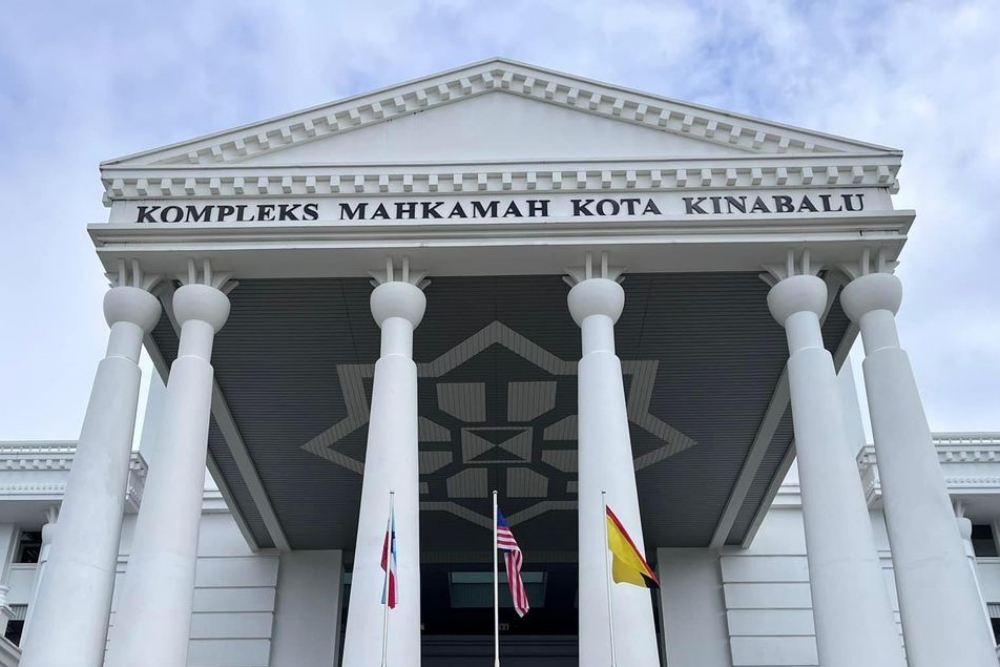ADVERTISE HERE

Abang Johari delivers his keynote address at the Singapore Energy Summit. — Ukas photo
KUCHING (Oct 21): Sarawak has surpassed its 60 per cent renewable energy target this year, says Premier Datuk Patinggi Tan Sri Abang Johari Tun Openg.
He says the state is progressing well in its sustainable energy goals where renewable energy has been a key enabler of socio-economic growth.
“As of 2024, we have already exceeded our 60 per cent renewable energy target, with 62 per cent of our energy mix coming from renewables,” he stated in his keynote address at the Singapore Energy Summit held in conjunction with Singapore International Energy Week (SIEW) 2024 at the Sands Expo and Convention Centre in Singapore today.
One of the targets of the Post Covid-19 Development Strategy (PCDS) 2030 is maintaining a 60 per cent renewable energy capacity mix by 2030.
The Premier said Sarawak is committed to supporting Southeast Asia’s transition to renewable energy.
“We have the potential to be the ‘Battery of Asean’, sharing our predominantly renewable power with our Southeast Asian neighbours through the interconnected Borneo and Asean Power Grid.
“As regional demand for clean energy grows, these efforts are essential for enhancing cross-border energy exchange, strengthening regional security and accelerating the clean energy transition,” he said.
Looking ahead to the Asean Plan of Action for Energy Cooperation 2026–2030 period and with Malaysia assuming the Asean Chair next year, he said Sarawak is dedicated to deepening regional cooperation and fostering greater connectivity across its energy systems.
“Sarawak is actively collaborating with the Malaysian federal government to advance the Asean Power Grid, with the formation of a joint task force between Malaysia and Indonesia to accelerate its development.
“By doing so, we can collectively drive meaningful progress towards a sustainable and resilient energy future for all Asean member states,” he said.
He shared that Sarawak is not only focused on providing clean power for its own development, but the state also sees great commercial potential in exporting electricity.
“We are strong advocates of regional interconnectivity and foresee that power trade in Asean will gradually move from bilateral connections to a more integrated network involving renewable sources.
“Sarawak’s partnerships with Indonesia, Sabah, Brunei and Singapore could lay the foundation for cross-border energy trade through groundbreaking projects like the Borneo-Indonesia-Malaysia-Philippines Interconnection,” he said.
Abang Johari pointed out that making the Asean Power Grid a reality would require more than just technological and financial solutions.
“It will need political will, policy alignment, harmonisation of regulations and standards, infrastructure development and regional cooperation.
“Sarawak, with its strong track record in decarbonising its energy system, is poised to play a key role in sharing renewable, low-carbon electricity across Southeast Asia,” he said.
He also said that Sarawak, in learning from its role as energy producer, exporter and utiliser, is committed to expand its role to foster cross-border partnerships and investments as the state’s energy transition success stories can serve as models for other jurisdictions.
Abang Johari and the Sarawak delegation arrived in Singapore on Oct 20 for a two-day official visit, where in addition to the Singapore Energy Summit, the Premier will also be meeting with Asia’s leading communications group Singtel Group to discuss on potential partnership in telecommunications and digital infrastructure as well as to tour the Surbana Jurong Campus at Cleantech Loop.
Among those in the state delegation are Utility and Telecommunication Minister Dato Sri Julaihi Narawi, State Secretary Datuk Amar Mohamad Abu Bakar Marzuki, Deputy State Secretary Datu Hii Chang Kee, Sarawak Energy Berhad chairman Dato Ibrahim Baki and group chief executive officer Datuk Sharbini Suhaili.








 English (US) ·
English (US) ·